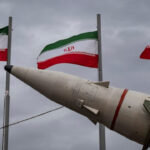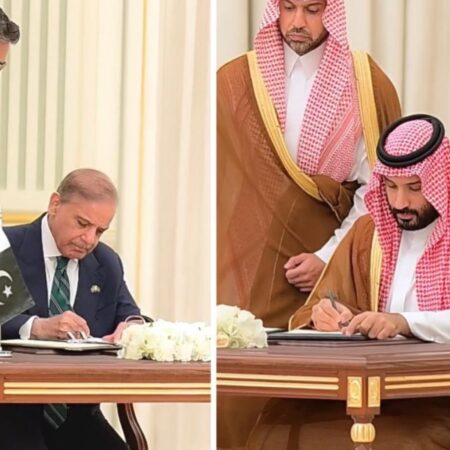
A staff-level agreement has been achieved between Pakistani authorities and the International Monetary Fund (IMF) over a new arrangement under the Resilience and Sustainability Facility (RSF) and the first review of Pakistan’s Extended Fund Facility (EFF). The IMF’s Executive Board must approve the deal, which was unveiled following talks in Karachi and Islamabad from February 24 to March 14, 2025.
Pakistan will receive almost $1 billion (SDR 760 million) under the EFF as a result of the deal, increasing the program’s total payouts to $2 billion. Furthermore, $1.3 billion (SDR 1 billion) would be made available through the new 28-month RSF arrangement to aid Pakistan’s sustainability and climate resilience initiatives.
In addition to maintaining a tight enough monetary policy to keep inflation low, the IMF noted that “the authorities remain committed to advancing a gradual fiscal consolidation to sustainably reduce public debt, accelerating cost-reducing energy sector reforms to enhance its viability, and implementing Pakistan’s reform agenda to accelerate growth, while strengthening social protection and health and education spending.” The EFF-supported program is still being implemented strongly.
The RSF will also help Pakistan’s efforts to improve climate adaptation through budget and investment planning, increase the country’s ability to withstand natural disasters, improve the efficient and productive use of water, strengthen the climate information architecture to better disclose climate risks, and align energy sector reforms with mitigation goals, the statement continued.
Developments in Economic Stability:
Notwithstanding international obstacles, the IMF emphasized Pakistan’s noteworthy advancements in reestablishing macroeconomic stability during the previous 18 months. Financial circumstances have improved, external balances have strengthened, and inflation has dropped to its lowest level since 2015. The IMF did, however, warn that there are still downside risks, such as possible policy lapses, geopolitical shocks, and climate-related difficulties.

In order to foster growth driven by the private sector, the IMF underlined that Pakistan must maintain its momentum by bolstering public finances, maintaining price stability, restoring foreign exchange reserves, and removing economic inefficiencies.
RSF: What is it?
Countries implementing measures to lower risks to the future stability of their balance of payments, such as those associated with climate change and pandemic preparedness, can receive inexpensive long-term financing from the Resilience and Sustainability Facility (RSF).
Important Policy Obligations:
In order to address long-standing vulnerabilities and increase resilience to climate shocks, Pakistani authorities have reaffirmed their commitment to the EFF-supported program and defined important policy priorities under the RSF-supported program. These consist of:
Although they will not be increasing current spending beyond what is budgeted, the authorities are committed to maintaining the generosity of the Benazir Income Support Programme (BISP) unconditional cash transfer program, aiming to save money on energy subsidies, and prioritizing development spending. They are also on track to achieve an FY25 underlying primary surplus of at least 1.0 percent of GDP and are committed to maintaining consolidation in the FY26 budget.
Continuing to advance budgetary structural reforms:
The government is committed to keeping up its efforts to increase transparency, spending efficiency, and revenue mobilization in order to increase the size of the tax base. Though successful implementation is essential to the AIT’s effectiveness and increased fiscal devolution in FY26, it is noteworthy that all four provinces have modified their Agriculture Income Tax (AIT) regimes, which is a significant step towards improved tax equality and broadening the tax base. In order to improve sustainability and governance, the authorities are also still dedicated to enhancing public financial management, guaranteeing expenditure transparency through the electronic Pakistan Acquisition and Disposal System (e-PADS), and creating debt management.
Economic Policy:
In order to keep inflation within the medium-term goal range of 5-7 percent, the State Bank of Pakistan (SBP) will continue to implement strict, data-driven monetary policy. Rebuilding foreign exchange reserves and allowing for exchange rate flexibility are priorities for the government.
Reforms in the Energy Sector:
The stock and flow of the sector’s circular debt have been lessened by the authorities’ prompt implementation of changes to gas and electricity tariffs as well as the early effects of reforms; these should continue to be priorities.
The government will expedite cost-cutting energy sector reforms, such as increasing the use of renewable energy, integrating captive power into the grid, privatizing inefficient generating enterprises, and enhancing distribution efficiency.
Reforming the Structure:
While establishing suitable governance processes and safeguards for the Pakistan Sovereign Wealth Fund (PSWF), the authorities will continue their efforts to fully implement the SOE governance framework across all SOEs. In order to promote inclusive growth and fair playing fields for investment and business, they will drastically lower trade barriers and bolster institutional capacity to combat corruption.












No Comment! Be the first one.